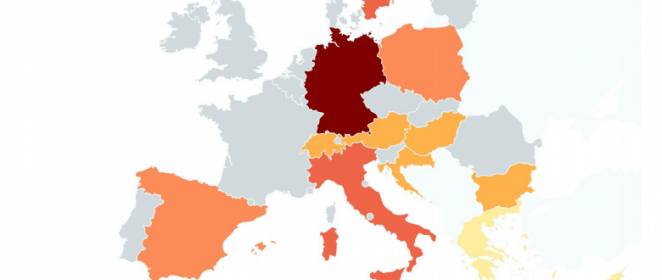A statistical update published by ECRE’s Asylum Information Database (AIDA) releasing figures for 12 European countries from 2016 reveals persisting fundamental dysfunctions in the Dublin system. The inefficiency is illustrated by disproportionately low transfers compared to procedures, its inconsistency by contradictions with the EU emergency relocation scheme, and its inadequacy in safeguarding rights by Member States’ restart of transfers to Greece.
“While the EU legislature has started difficult and complex negotiations on the ‘fourth-generation’ Dublin Regulation, the message given by statistics remains unchanged: Dublin is a bureaucratic behemoth, entailing severe human, administrative and financial costs for both individuals and national authorities, with minimal effect on regulating the actual movement of asylum seekers in Europe”, says Minos Mouzourakis, AIDA Coordinator.
Dublin continues to be highly inefficient in terms of actual transfers compared to the number of procedures initiated in Member States through Dublin requests. Although Sweden had a 43.2% transfer rate, Germany (by far the main operator of the system) had a rate of 7.1% and Italy only 0.4%. Countries such as France and Belgium, have announced policy measures to increase the number of Dublin transfers in the future.
The operation of Dublin also seems highly paradoxical for the countries assisted by the EU emergency relocation scheme, since the two mechanisms run in parallel. In the first eleven months of 2016, Italy transferred 1,864 people to other countries under Dublin family reunification and relocation, but received more people (2,086) from other countries under Dublin.
Greece has not faced such a situation, as Dublin transfers were generally suspended until now and just 3 people were returned in 2016. However, following a European Commission Recommendation of December 2016, several countries including Germany, Austria and Belgium have announced their intention to restart transfers, despite severe concerns on the human rights conditions facing asylum seekers in Greece. A total 946 people were transferred out of Greece under the Dublin Regulation in 2016, the majority reuniting with family members elsewhere in Europe.
The implementation of the relocation scheme was also examined in depth by a European Parliament study, calling for a faithful application of Dublin family reunification provisions before relocation is applied. The study also called for dignity-based transfers of asylum seekers and avoidance of coercion.
Figures on the Dublin system are one of the most challenging aspects of data collection in the Common European Asylum System, as Eurostat has never been able to obtain statistics for all countries operating the system.
The main operators of the Dublin Regulation in 2016 were:
- Germany: 55,690 requests and 3,968 transfers
- Switzerland: 15,203 requests and 3,750 transfers
- Sweden: 12,118 requests and 5,244 transfers
Most requests from Switzerland (98.1%) were addressed to countries of first entry or where asylum applications had already been registered, while Germany’s requests (69.1%) mostly relied on ‘hits’ in the Eurodac fingerprint database.
Among the main countries receiving Dublin transfers were:
- Germany: 31,523 requests and 12,091 transfers
- Italy: 26,116 requests and 2,086 transfers
- Poland: 9,503 requests and 1,420 transfers
For further information:
- ECRE, Comments on the Commission proposal for a Dublin IV Regulation, October 2016
- Elspeth Guild et al., The implementation of the Council Relocation Decisions, March 2017

